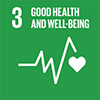The RCSI SIM Centre for Simulation Education and Research aims to improve patient safety, education and research through experiential simulation-based learning techniques and tools.
The state-of-the-art simulation facilities at RCSI enable students and postgraduate surgical trainees to undertake deliberate practice of clinical skills in a safe learning environment, to achieve the highest standards before they work directly with patients.
The pandemic caused serious disruption for students limiting the access that many had to essential training in clinical settings. The team at RCSI SIM developed novel ways of teaching and used simulation to deliver the learning outcomes that undergraduate and postgraduate students would typically achieve from real-life situations.
Here, Miroslav Voborsky, Senior Clinical Skills and Simulation Technician, shares some examples of the innovative solutions the team developed.
"Working in partnership with students, faculty, administrative staff and industry partners, we delivered a number of innovations to facilitate training for medical students across disciplines, including physiotherapy, radiology, endoscopy and Advanced Trauma Life Support (ATLS).
"We recreated a physiotherapy practice to allow first-year physiotherapy students to experience work placements within a simulated setting. This allowed students to practice consultation skills, examination skills and appropriate-fidelity scenario training. A total of 32 students achieved the learning outcomes and progressed to the second year as a result.
"In radiology, we worked closely with fourth-year radiology student, Jack Karp, alongside the RCSI Faculty of Radiologists to set up Point of Care Ultrasound (POCUS) workshop days for students. The use of POCUS is increasing in medicine, allowing clinicians to use ultrasound to examine patients and make important treatment decisions in real-time from a patient's bedside. The RCSI team is now working to embed POCUS training across the whole undergraduate curriculum.
"We introduced two new advanced practicals as part of the endoscopy training programme. The practicals were set up using endoscopy models developed by the RCSI SIM team specifically for simulation training purposes. The use of the model in the simulation setting proved successful and is now being integrated into the curriculum in the longer-term.
"In ATLS, essential reforms in trauma training were introduced across Irish medical teaching to allow the programme to meet the revised criteria and standards set out by the American College of Surgeons. This enabled the programme to develop despite the challenges caused by the pandemic.
"The innovations in teaching and simulation implemented during the pandemic have made an enduring impact on the curriculum, on training models and on the working environment ensuring training of future healthcare professionals will continue to the highest standards into the future.”
RCSI is committed to achieving a better and more sustainable future through the UN Sustainable Development Goals.

